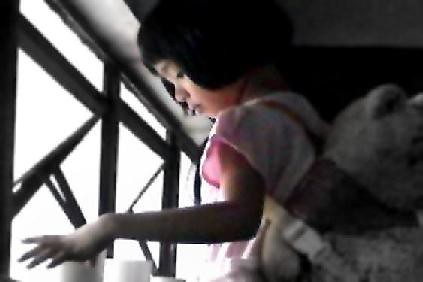A Day Job Snippet
Like I said before in the previous quote, I am 1/4 of a creatives consultancy company.
By this I mean that there are 3 other partners into this venture who I collaborate with to serve our clients who consult with us regarding their... umm.... creativity concerns?
Part of the job is fostering and nurturing creativity within our community of freelance talents and friends. Which is why this article came to be. This is a first of (what I fear to be) several write-ups on the subject.
Read on if you wish. Comments can be added at the end of the post.
What You Thought You Knew About Creativity
When you hear the word “creativity”, what sort of images come to mind?
An artist standing in front of an easel working on the canvas?
A composer slaving over a piano etching notes onto a music sheet?
A writer scribbling down words that seem to flow effortlessly into poetry?
An entrepreneur planning for his next business venture?
Does this speak creativity?
Traditionally, maybe not.
But as you probably may already know, creativity is something that is not exclusive to the stereotypes of the arts. Creativity belongs in just about any endeavor, whether in something as abstract as art, or in something as hard-tacked as business.
While several people may already know this, only a few are aware of creativity myths - myths that perpetuate a cycle that stifle creativity, rather than cultivate it.
A study conducted by Professor Teresa Amabile of the Harvard Business School took about 12,000 daily journal entries from nearly 250 people tasked with creative projects. These respondents came from 7 companies of different industries such as consumer products, chemicals and technology.
Based on the respondents’ journals that detail their experiences and feelings about the projects they are involved in, Professor Amabile discovered that certain assumptions about creativity are untrue. Instead of fostering creativity, these misconceptions caused counter-productive results for the company.
Creativity Myth # 1: There are “creative” types and “non-creative” types.
Research and studies into creativity show that everyone is capable of degrees of creativity. “Creative types” are said to belong to fields like Marketing and R&D but less so in Operations.
However, even those who have a knack for less “creative-related” jobs are still capable of bringing in fresh ideas. In fact, they may even contribute a totally creative solution from seeing things from a different perspective.
Anyone can be creative because all it takes is: experience (which includes knowledge and technical skills); talent; the capacity to persevere even in dry spells of creativity; and most importantly, motivation or finding significance in the work that one does.
Creativity Myth # 2: Money motivates creativity.
In the study, many respondents reacting to the question: “To what extent are you motivated by rewards?” found the query irrelevant to the quality of work that they do. In fact, the ones who were focused on monetary rewards were often found to do very little creative work or produce creative results.
More creative results were found in people who cared about their work and how they can be better at what they do. These are the types who feel deeply engaged to their work and feel responsible for making significant strides in their projects.
Creativity Myth # 3: Creative juices get flowing when pressured for time.
While people may think that beating the clock causes them to think more creatively, the opposite is actually truer. Those working under time pressure experience not only decreased creative output on the day itself, but also in the following days – something sort of like a hangover from being under time pressure.
The reason for this is because time pressure prevents a deep engagement with the problem. The person is too bent on making the deadline that he is distracted from key elements of the task set before him, which could have led to a more productive and effective result.
Creativity Myth # 4: Competition brings out the best results.
While that may be true in some respects, when it comes to creativity, Prof. Amabile found that the idea of competing with another person or team serves only to distract, rather than cultivate creativity in much the same way as time pressure does.
The most creative results are found to be produced in an atmosphere of collaboration, where people are free to share ideas. On the other hand, when the need to garner recognition or to prove the competing party is inferior, information is withheld which in turn prevents creative results.
By debunking these myths, the Harvard study shows that people are at their best and most creative when they are motivated by the work that they do and how they do it. Fostering such an atmosphere cultivates true creativity which can yield results and outcomes that know no bounds.

No comments:
Post a Comment